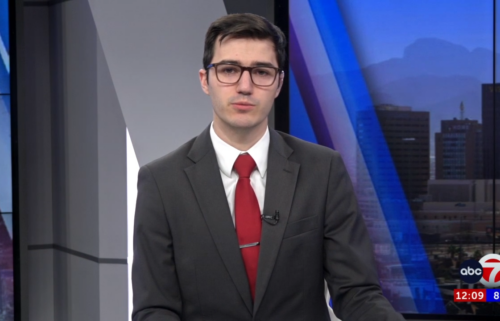A judge heard the case of a death row inmate who claims innocence, weeks before he’s scheduled to be executed
By Dakin Andone, CNN
(CNN) — A Missouri judge held an evidentiary hearing Wednesday over the innocence claim of death row inmate Marcellus Williams, whose quest to prove he did not murder a woman in 1998 has been complicated by contaminated DNA evidence.
Williams, 55, is scheduled to be put to death on September 24 for the murder of Felicia Gayle, a one-time reporter for the St. Louis Post-Dispatch found stabbed to death in her University City home. He was convicted in 2001 of first-degree murder, burglary and robbery, among other charges, and sentenced to death, but he has always maintained his innocence.
St. Louis County Circuit Court Judge Bruce Hilton was ordered by the Missouri Supreme Court to hold Wednesday’s hearing after the court blocked an agreement Hilton approved between the inmate and the St. Louis Prosecuting Attorney’s Office that would have spared Williams’ life. The case has pitted Wesley Bell, a local prosecutor running for Congress as a Democrat, against state Attorney General Andrew Bailey, a Republican seeking reelection.
Williams’ innocence claim is championed by attorneys for the Innocence Project and the Midwest Innocence Project. His case raises the specter of a potentially innocent person being put to death, an inherent risk of capital punishment. Indeed, at least 200 people sentenced to death since 1973 have thereafter been exonerated, four of them in Missouri, according to the Death Penalty Information Center.
In January, the St. Louis Prosecuting Attorney’s Office, led by Bell, filed a motion to vacate Williams’ conviction, saying DNA evidence that could purportedly exclude Williams as the killer had never been reviewed by a court. Prosecutors were expected to present evidence in court last Wednesday to support that motion, which relied on analysis by three DNA experts who determined DNA testing excluded Williams as the person who wielded the knife used to kill Gayle.
But the hearing did not happen as scheduled, as Bailey’s office – which opposed the local prosecutor’s motion – argued new DNA testing showed the knife had “been handled by many actors, including law enforcement” and so would not exonerate Williams. The Associated Press reported the new DNA testing found DNA from an investigator for the prosecutor’s office at the time of Williams’ trial, and that the testing also couldn’t exclude the prosecutor who handled the case.
On Wednesday, that prosecutor testified that, while preparing for trial, he touched the knife at least five times while not wearing gloves, the AP reported, while an expert in forensic DNA testing testified it was impossible to know if Williams’ DNA was on the knife at one time because of how it had been handled in the past.
Jonathan Potts, an attorney for Williams said in court the mishandling of that evidence had “destroyed” Williams’ “last and best chance” to prove his innocence, the AP reported.
That sentiment was echoed by another attorney for Williams, Tricia Rojo Bushnell, who said in a statement to CNN the revelations about the mishandling of evidence had “foreclosed Mr. Williams’ ability to conclusively prove his innocence at this moment in time, and that under these circumstances, it would be unconscionable to allow his execution.”
When last week’s hearing did not take place, Bell’s office announced it had reached an agreement with Williams. Under the consent judgment, approved by the court and Gayle’s family, the inmate would have entered a so-called Alford plea of guilty to first-degree murder and in exchange be resentenced to life in prison.
But the attorney general’s office opposed the deal and appealed to the state Supreme Court, which swiftly blocked the agreement. Bailey’s office praised the court’s intervention, while the prosecutor’s office said it still had “concerns about the integrity” of Williams’ conviction.
Bell’s office had raised other issues with Williams’ conviction, claiming in its motion he was convicted on the testimony of two unreliable informants who were facing their own legal troubles and were further incentivized by $10,000 in reward money.
This story has been updated with additional information.
The-CNN-Wire
™ & © 2024 Cable News Network, Inc., a Warner Bros. Discovery Company. All rights reserved.

